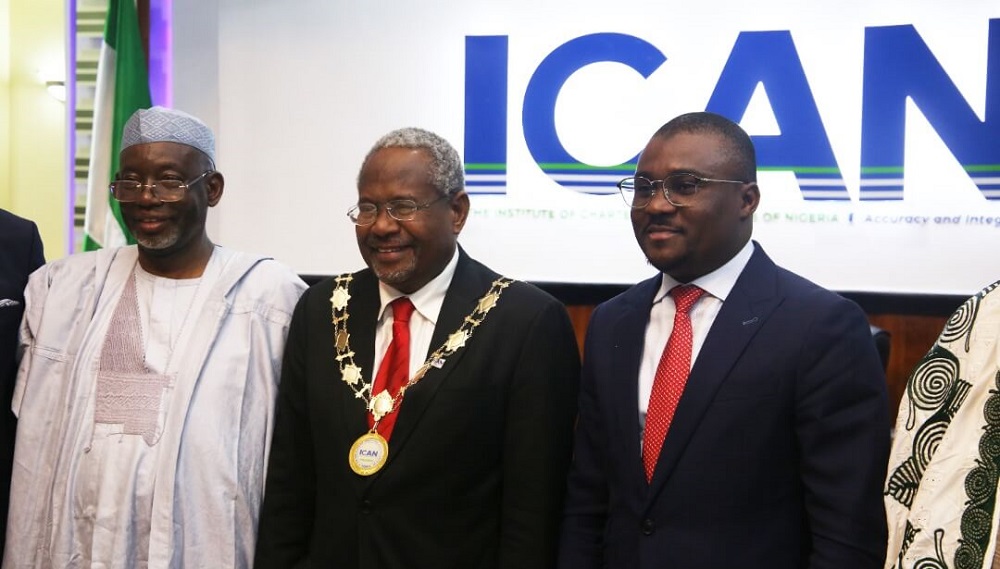The Institute of Chartered Accountants of Nigeria has called on the Federal Government to ensure speedy implementation of the Nigeria Energy Transition Plan.
The Institute said this in a communique issued at the end of its 52nd Annual Accountants’ Conference with the theme: “Nigeria: Adopting sustainability for economic prosperity”.
Advertisement
The conference was declared open by President Muhammadu Buhari and had 6,393 Delegates from within and outside Nigeria.
It also had six plenaries, during which eminent scholars, professionals, and technocrats drawn from within and outside Nigeria made presentations.
In addition, five of the candidates contesting for the 2023 Presidential election in Nigeria attended the Conference.
The Communique was jointly signed by the President of ICAN, Mallam Tijjani Isa, and the Registrar of the Institute, Prof Ahmed Kumshe.
The Nigeria Energy Transition Plan is a home-grown, data-backed, multipronged strategy developed for the achievement of net-zero emissions in terms of the nation’s energy consumption.
Advertisement
The Plan sets out a timeline and framework for the attainment of emissions’ reduction across five key sectors. They are power, cooking, oil and gas, transport and industry.
Within the scope of the ETP, about 65 per cent of Nigeria’s emissions are affected.
Based on the Plan, the Federal Government had stated that the country can be carbon neutral by 2060
Gas is expected to play a critical role as a transition fuel in Nigeria’s net-zero pathway particularly in the power and cooking sectors.
In the Communique a copy of which was made available to THE WHISTLER, Delegates acknowledged that the challenge of climate change presents an opportunity for Nigeria to transform into a green economy.
Advertisement
According to the Communique, a Nigerian Green Economy would, for instance, build a sustainable transportation system devoid of carbon emissions, have an efficient recycling and waste management system, and lower unemployment by creating green jobs for the future, in a more diversified economy.
Delegates recognised that to meet the 2060 target of a net-zero economy, the National Council on Climate Change (NCCC) should go beyond aggregating the activities of Public and Private entities.
It added, “Delegates urged the Council to collaborate with relevant stakeholders to implement its mandate – produce a carbon budget, establish a climate fund and release the National Climate Action Plan, among others.
“Delegates agreed that to create new revenue sources, drive innovation, create jobs, and support linkages among sectors for a positive spillover of growth and productivity, the government should accelerate the implementation of the provisions of the Climate Change Act 2021, continue investment in technology, and increase spending on infrastructure.
“Delegates noted the nexus between energy availability and economic development and appreciated why Nigeria’s large energy deficit is responsible for the lag in economic development.
“Delegates noted that though Nigeria has bold and ambitious plans, concerted efforts are required to optimise the intended value. They then urged that the Nigerian National Energy Transition Masterplan be harmonized, aligned, and ultimately implemented.”
Advertisement
In terms of economic growth and development, the Communique stated that adoption of sustainability practices is the current direction of travel, as it determines the flow of new and mobile factors of production.
Considering its significantly youthful population and access to abundant natural resources, it said Nigeria is well positioned to attract this new investment that is needed for the next wave of economic prosperity.



